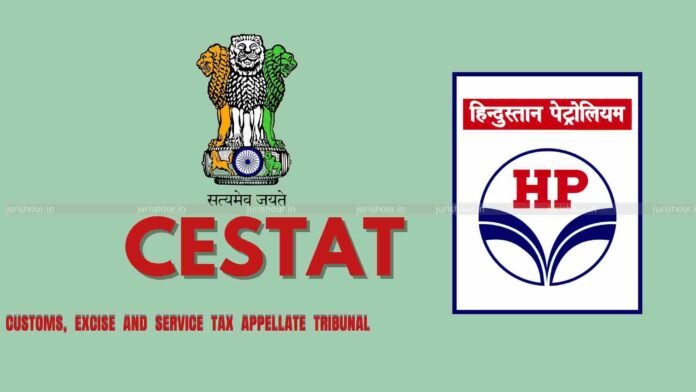The Customs, Excise & Service Tax Appellate Tribunal (CESTAT), Mumbai Bench has set aside an excise duty demand of over Rs. 6.21 crore raised on Hindustan Petroleum Corporation Ltd. (HPCL), holding that the intermixing of Superior Kerosene Oil (SKO) with Motor Spirit (MS) or High-Speed Diesel (HSD) during pipeline transportation does not constitute manufacture under the Central Excise Act, 1944.
The bench of S.K. Mohanty (Judicial Member) and M.M. Parthiban (Technical Member) has observed that no statutory provision authorises charging duty at different rates for the same excisable goods. The Board’s circular cannot override the law—it may clarify existing provisions but cannot create new obligations. The intermixed product cannot be classified as MS or HSD under Chapter 27 of the Central Excise Tariff Act unless it meets the specific BIS standards for those products. Since HPCL had already paid duty treating the interface quantity as industrial SKO, no further liability could arise.
The appellant, HPCL’s Mahul refinery in Mumbai transports refined petroleum products—MS, HSD, and SKO—through its Mumbai-Pune-Solapur pipeline to various depots. Due to continuous product pumping, a small portion of SKO unavoidably mixes with MS or HSD, creating an “interface” or “transmix”. The company collects such intermixed products in separate tanks as per prescribed safety and operational standards.
The Department alleged that these intermixed quantities should be treated as MS/HSD and charged at higher excise duty rates. Accordingly, a show cause notice dated October 30, 2015 demanded ₹6.21 crore in excise duty (₹1.72 crore on SKO interfaced in MS and ₹4.48 crore on SKO interfaced in HSD), invoking the extended limitation period under Section 11A(4) of the Act, along with equivalent penalty under Section 11AC.
HPCL argued that the mixing of SKO with MS or HSD occurs due to technical necessity and does not amount to manufacture under Section 2(f) of the Central Excise Act. The company already paid duty on industrial SKO (which is higher than subsidised PDS SKO) for the intermixed quantity, thus complying with excise requirements. The Department’s reliance on the CBEC Circular dated April 22, 2002, directing duty on the higher of MS/HSD values, is contrary to Section 4 of the Act governing valuation.
The Department maintained that the demands were sustainable as per the CBEC Circular and claimed that HPCL’s duty computation based on SKO rates was incorrect. The Revenue argued that the interface product effectively became MS/HSD due to its composition and should be charged at the higher applicable duty.
CESTAT concluded that the order to the extent it had confirmed additional duty over and above the amount of duty paid on industrial SKO, along with consequential penalties, is not legally sustainable.”
The Tribunal set aside the excise duty and penalty imposed on HPCL and allowed the appeal in full.
Case Details
Case Title: Hindustan Petroleum Corporation Ltd. Versus Pr. Commissioner of CGST & Central Excise, Mumbai-II
Case No.: Excise Appeal No. 85335 of 2016
Date: 23.10.2025
Counsel For Appellant: Mansi Patil, Advocate
Counsel For Respondent: Shambhoo Nath, Special Counsel
Read More: Madras HC Quashes Ex Parte GST Assessment; Orders Fresh Hearing with 50% Deposit

